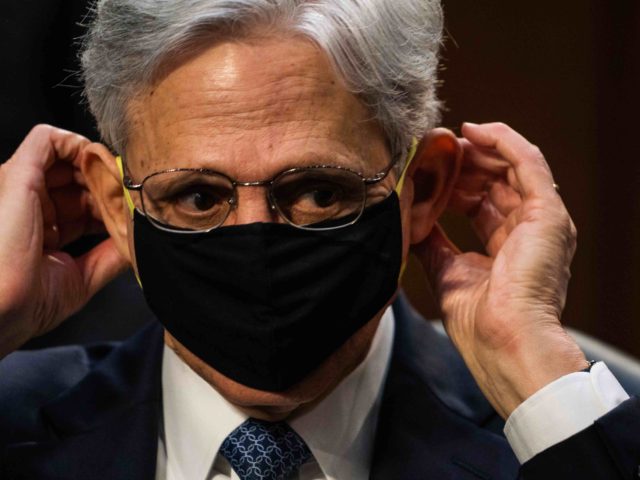Judge Merrick Garland received a hero’s welcome from the Democrats on the Senate Judiciary Committee on Monday. Several noted how thrilled they were to see him testifying in a confirmation hearing — as they had hoped in 2016, when Garland was nominated to fill the late Justice Antonin Scalia’s seat on the U.S. Supreme Court.
But Garland’s testimony — shaky at times, radically left-wing at others — made clear that America dodged a bullet when Republicans blocked him.
Garland is no “moderate.” He is a standard-issue left-liberal, ready to follow the lead of the radicals who have taken over the Democratic Party.
It was both sad and amusing to see him attempt to define the term “systemic racism.” First, he said it meant “discrimination and widespread disparate treatment of communities of color and other ethnic minorities in this country.” He listed several examples — all of which showed economic inequality, without showing “disparate treatment.”
Pressed further by Sen. John Kennedy (R-LA), who noted that Garland’s definition looked more like “disparate impact” than any act of deliberate racial discrimination, Garland said that such difference “in some cases is the consequence of historical patterns, sometimes the consequence of unconscious bias.”
Kennedy challenged him: “When you were at the Department of Justice, was the Department of Justice then systemically racist?” All he could do was dodge the question.
Another question he evaded was the yes-or-no query posed by Sens. Chuck Grassley (R-IA), Tom Cotton (R-AR), and Ted Cruz (R-TX): should Special Counsel John Durham be kept in his job? And would Garland commit to publishing Durham’s report, when it emerged?
All three noted that Attorney General William Barr had said “yes” when asked the same about Special Counsel Robert Mueller. But Garland refused to be pinned down, saying he needed to know more.
In so doing, Garland endorsed a clear double standard: an inquiry into President Donald Trump had to be protected, but one that could implicate Democrats — including President Joe Biden himself — could be dismantled.
Likewise with his ludicrous attempt to differentiate between the left-wing riots against the federal courthouse in Portland, Oregon, and the recent Capitol riot. The former riots might not be “domestic terrorism,” he suggested, because they took place after hours.
So much for Judge Garland’s high-minded statements about keeping politics out of the Department of Justice.
After his admirable statements about prosecuting white supremacists, he defended Kristen Clarke, nominated to lead the Civil Rights Division, despite questions about her alleged racist and antisemitic views. He struggled to assure Sen. Mike Lee (R-UT), who questioned him about Clarke, that the Department of Justice would protect conservatives’ rights, too.
That will continue to be a tough sell, after Garland appeared to support Democrats’ interest in drafting new laws to limit free speech online.
He also attempted to evade a question about transgenderism being imposed on school sports, and declined to say if crossing the U.S. border illegally should remain a crime. He pleaded ignorance when asked his view of the Department of Justice giving big grants to left-wing activist groups. He said he would consider the issue — later, after he was confirmed.
What Monday’s hearing proved was that the previous hype about Garland being a “moderate” was completely empty. At the very least, he is willing to go along with the most left-wing agenda ever brought into government in the United States.
That has dangerous implications, when the ruling party is itching to criminalize its opposition. But we can take comfort in at least one thing: Judge Merrick Garland is not a Supreme Court Justice. What a disaster that would have been.
Joel B. Pollak is Senior Editor-at-Large at Breitbart News and the host of Breitbart News Sunday on Sirius XM Patriot on Sunday evenings from 7 p.m. to 10 p.m. ET (4 p.m. to 7 p.m. PT). He is the author of the recent e-book, Neither Free nor Fair: The 2020 U.S. Presidential Election. His recent book, RED NOVEMBER, tells the story of the 2020 Democratic presidential primary from a conservative perspective. He is a winner of the 2018 Robert Novak Journalism Alumni Fellowship. Follow him on Twitter at @joelpollak.

COMMENTS
Please let us know if you're having issues with commenting.